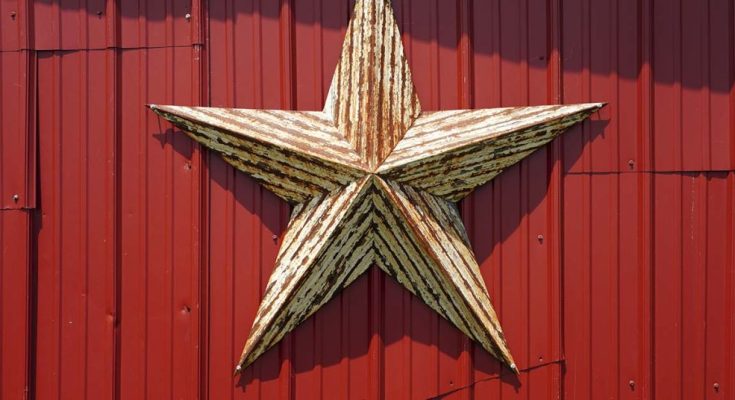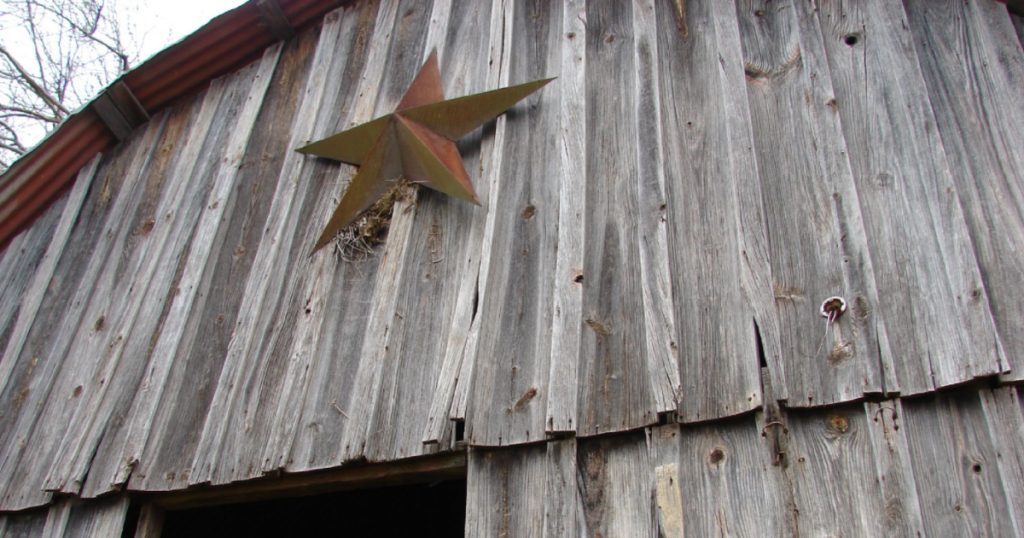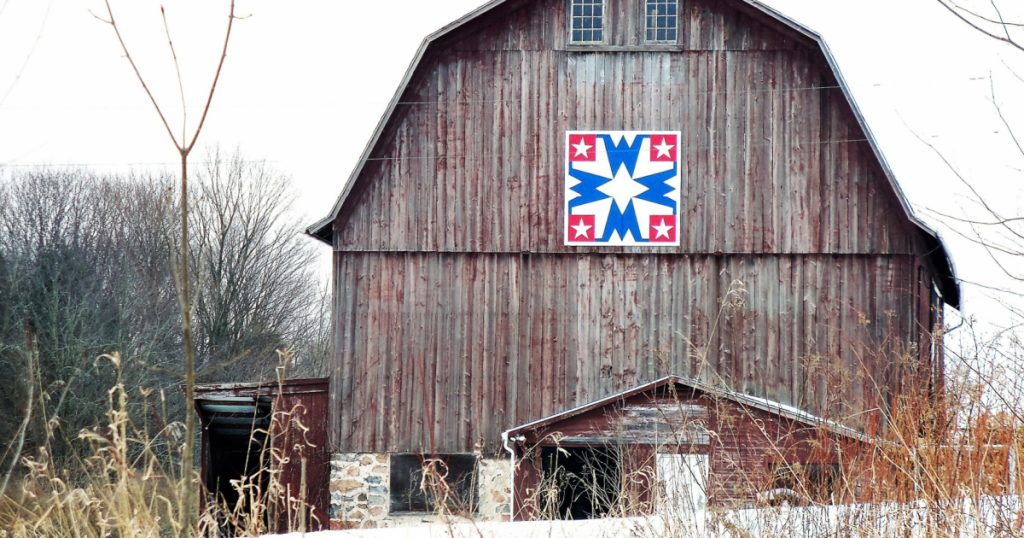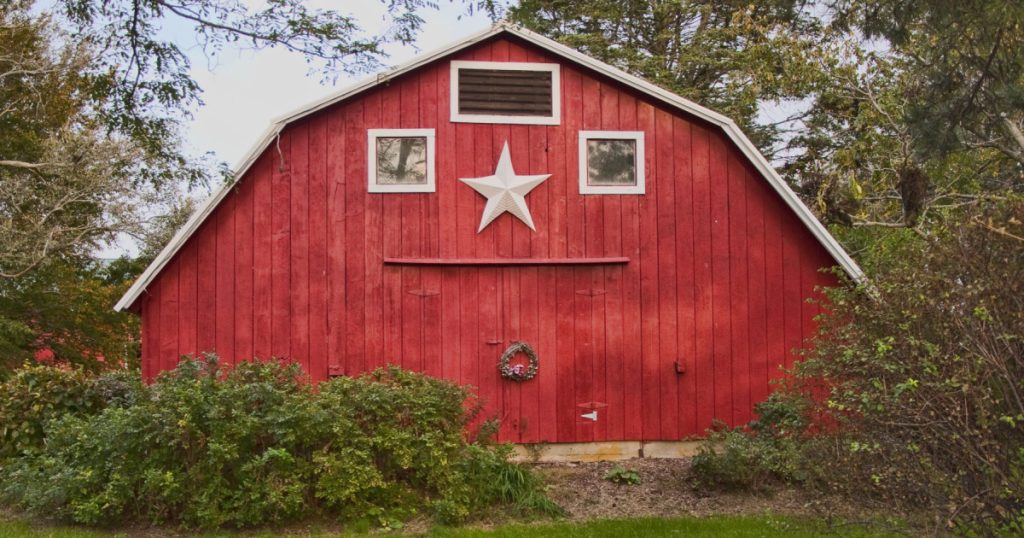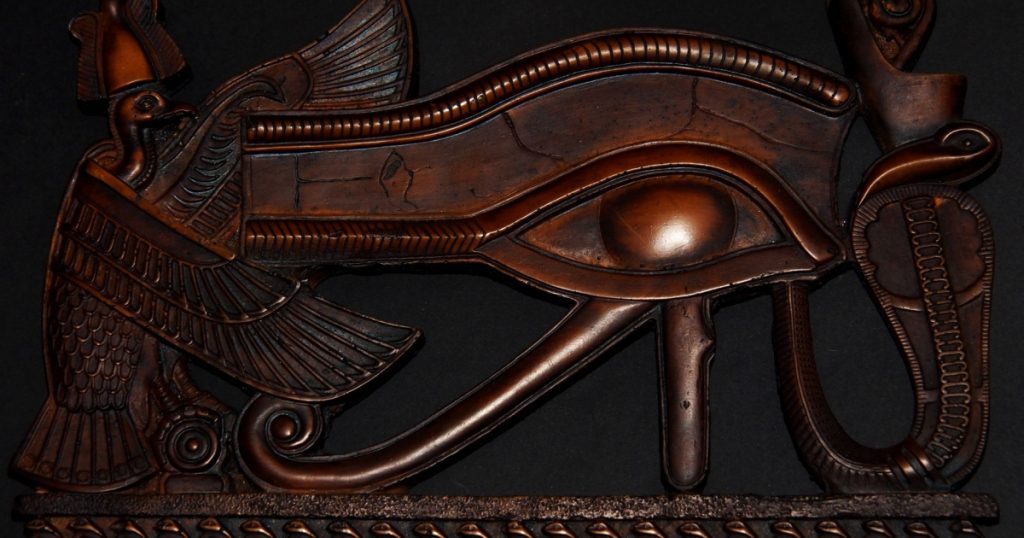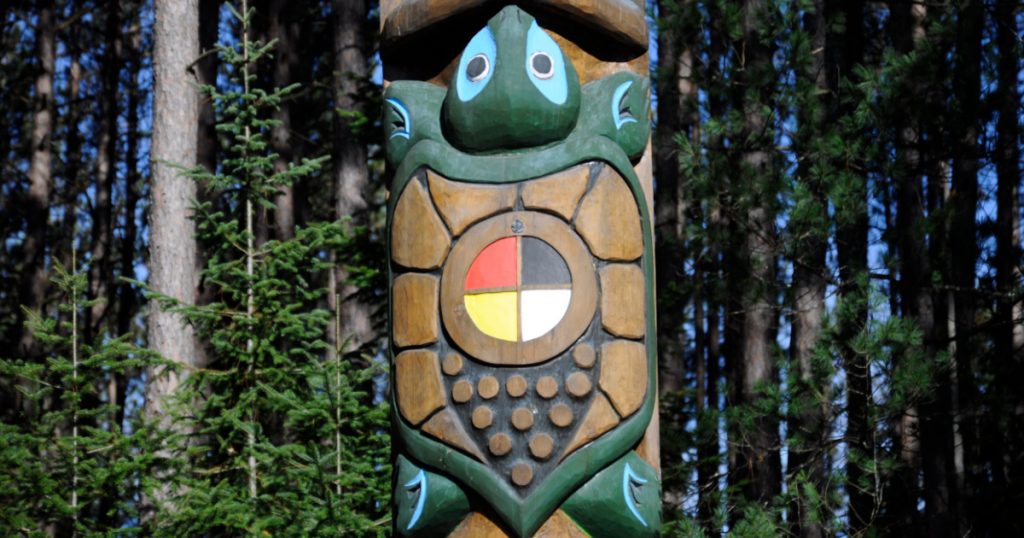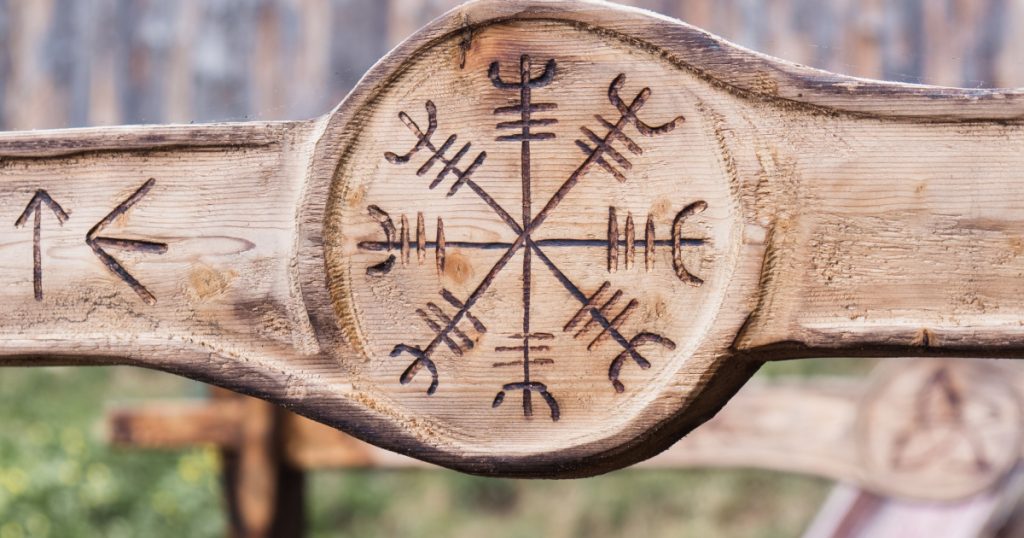Barn stars are an adorable decoration often seen at the top of a barn, over the door. They can either be painted on or pieces of star-shaped metal. Alternatively, quilt squares or hex signs are sometimes seen in their place. It turns out there’s a reason for these decorations, and it’s likely not what you thought. It turns out that Barn stars are actually very important to German-American farmers. They’re placed up at the top of barns to keep evil away or bring good luck to the farmer’s harvest. Interestingly, they may vary in color and each has its own meaning. For example, a green barn star represents the fertility of crops, symbolizing healthy growth. Meanwhile, blue or black barn stars signify protection over the farmer, their household, and their crops. On the other hand, brown represents friendship.
Barn Stars have an Interesting History
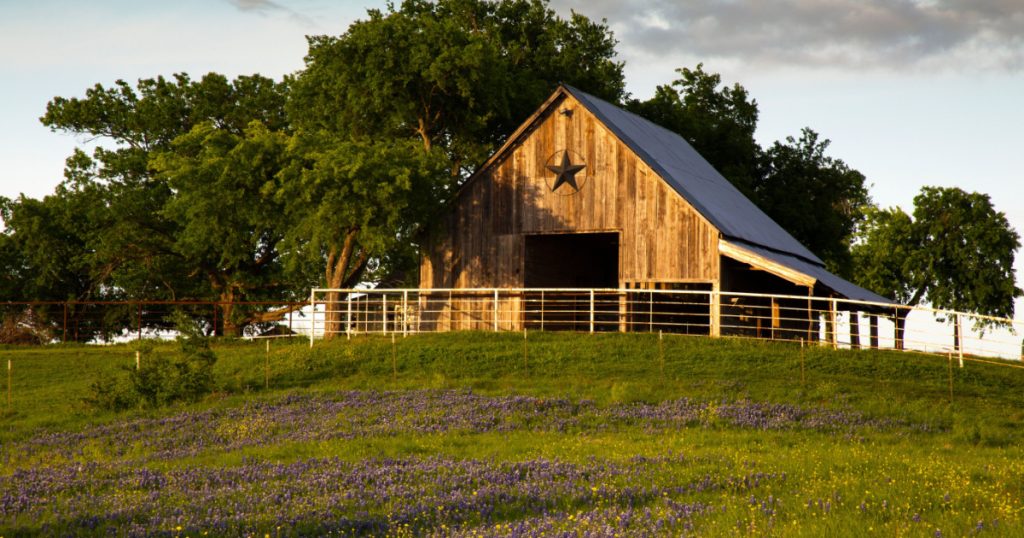
Although they’ve become a bit of a fashion statement, barn stars began popping up on barns as early as the 1830s. Within the Pennsylvania Dutch, or Amish, communities. Each symbol is an adaptation of German Folk art brought over from Europe. The Amish are known for living relatively simplistic lives, away from mainstream media and technology. Many homegrown customs and traditions have been carried on for generations and barn stars are no exception. Even more fascinating is that things that are often associated with one another to an outsider actually hold significantly different meanings to someone whose family roots are deep-seated in Pennsylvania Dutch customs. “It’s important to recognize that there really are two parallel traditions,” said Patrick Donmoyer, “There are the barn stars, and then there are the hex signs.”
